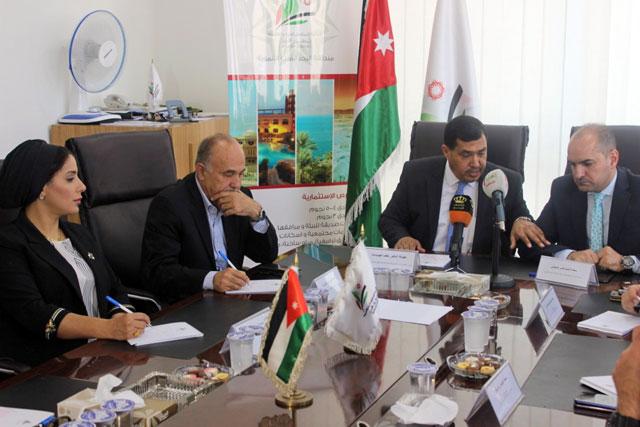You are here
Jordanian expats invest $7.2 billion in 42 countries
By JT - Jul 24,2018 - Last updated at Jul 24,2018
AMMAN — Jordanian expatriates’ investment volume stands at $7.2 billion, concentrated mainly in the real estate, securities and shares, tourism and hotels, industrial, service and ICT sectors, as well as other small individual enterprises.
President of Businesspeople Association of Jordanian Expatriates’ (BAJE) Chairman Fadi Majali has told the Jordan News Agency, Petra, that these investments are distributed in 42 countries, with the UAE hosting the largest share, with 21.1 per cent, followed by Saudi Arabia with 16.5 per cent and Indonesia with 11 per cent.
The US came fourth on the list with 9 per cent, followed by Iraq (8 per cent), Turkey (7 per cent), Egypt (6.5 per cent), Europe (5.5 per cent) and Sudan, whose share in Jordanian investment stands at 3 per cent, while the remaining 12 per cent was registered in other countries, Majali noted.
The chairman said that these investments include those of Jordanian companies and banks, noting that most of the individual investments are listed as small- and medium-size enterprises (SMEs) whose capital ranges between $100,000 and $1 million.
The data available show that the value of Jordanians’ investments in the real estate sector in Dubai stand between $350-$400 million and in Abu Dhabi and Sharjah at some $400 million, he said, adding that data of the Abu Dhabi Securities Exchange show that Jordanian investors are among the top nationalities in investing in the stock market.
He noted that Jordanian investments in Egypt ranked 10th among Arab countries and 22nd globally.
Majali said that Jordanian expatriates investing in the US and Europe have been living there for a long time and many of them have acquired the nationalities of these countries.
The chairman noted that despite the high tax rates in such countries, Jordanians there prefer to continue their investments due to the living standards they are used to and stability in legislation that regulates investment.
Jordanians’ investments in Western countries are mainly concentrated in service and tourism activities as SMEs, such as grocery shops, restaurants and other services, he pointed out.
As for Jordanian expatriates in the GCC, Majali hinted that there may be a “big chance” for some of their investments to return to the Kingdom if the government puts in place attractive policies, attributing the reason for their potential return to the new tax procedures in Gulf countries.
He noted that the past few years have witnessed several migrations of Jordanian capital, especially in the real estate and industrial sectors, which has moved mainly to Turkey and Dubai, adding that successive governments have failed in increasing benefits from expatriates in supporting the national economy.
The chairman said that Jordanian expatriates are a main provider for the national economy, where the value of their remittances positively reflects on the GDP, raises deposits at banks, increases lending volume for the private sector, boosts foreign currency reserves and reduces unemployment.
In this regard, he noted that the per capita share of remittances in Jordan is the highest in the world after Lebanon.
Majali called on the government to deal with expatriates more seriously through drafting policies that ensure benefits from expatriates’ remittances and acquainting them with available investment opportunities, especially outside Amman, stressing that the volume of expatriates’ remittances is larger than direct foreign investments and foreign aid.
The total remittances of Jordanians working abroad stood at $3.7 billion (some JD2.6 million) in 2017, according to data provided by the Central Bank of Jordan.
Related Articles
AMMAN — With the aim of encouraging expatriates and foreign businesspeople to invest in Jordan, a Memorandum of Understanding (MoU) was sign
AMMAN — The remittances of Jordanians working in Qatar in the first half of 2021 exceeded $220 million, Qatari bankers and money exchangers
AMMAN — The total remittances of Jordanians working abroad rose by 1.2 per cent by the end of April, hitting $1.2 billion, up from $1.185 bi

















